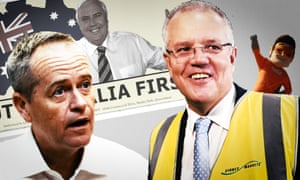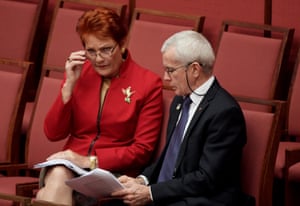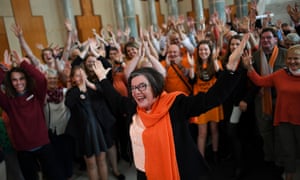Australians’ faith in politics has collapsed – how can we reimagine democracy?
“Late last year the Democracy 2025 project of the Museum of Australian Democracy and the University of Canberra released a major piece of research finding that trust in democracy in Australia has plummeted from 86% in 2007 to 41% in 2018.
Through quantitative and qualitative research over many years, they found compelling evidence of an increasing trust divide between government and citizens. This was reflected in falling trust in politicians, political parties and other key institutions (especially media), and a lack of confidence in the capacity of the government to address the public’s concerns.
Importantly though, the researchers found strong ongoing support for the principles of democracy.
Together, these seemingly contradictory statements show Australians like democracy, just not the version we have – our systems and our institutions of government are not doing the job we need them to do.
This is vital, because it points us to what we need to do in response. After a centuries-long struggle to demand democratic franchise for more and more people, we’ve become complacent as those in power have made that franchise less and less meaningful. We now need to re-engage people in democratic decision-making about our common future; we have to re-enfranchise ourselves by truly cultivating democracy.

Disenfranchisement is clearly one of the central phenomena of global politics today. It sits behind Trumpism and the Brexit slogan “Take Back Control”, as well as leftwing movements such as Occupy and Podemos, Naomi Klein’s articulation of a growing “corporatocracy”, and the rise of new commons-based politics in communities around the world. I have seen it rising (and being deliberately stoked) over 20 years of involvement in and observation of politics. And I’ve written about it and made it a focus of my work here at the Green Institute.
But it’s one thing to be aware of it and another altogether to be confronted by it, day in day out, in countless conversations, as a candidate running for election in what is probably among the most politically engaged electorates in the country.
The strong message coming from people I speak to is that politics is irrelevant to them, that it’s a waste of time, that it can’t and won’t make any difference. This wasn’t just people not paying attention to politics because they’ve got better things to do in their busy lives. It was an active choice not to engage, because they felt disgust and disdain for it. From Watergate to the deregulation of the banks, from poor planning decisions to the failure to act on the climate emergency, they saw no reason to have faith that voting would have any real impact on things that matter to them.

This sentiment goes some way to explaining what happened at this election. With Labor presenting a confusing and conflicted vision under an uninspiring leader and the Coalition being a farce, the combined major party vote fell to below 75% for the first time since our modern party configuration developed post-war; this is down from 77% in 2016, 79% in 2013, 81% in 2010 and 85% in 2007. In this context, a scare campaign backed by two billionaires (Clive Palmer and Rupert Murdoch) swung enough preferences to the right to enable an unpopular Coalition government to scrape back in above an even more unpopular Labor opposition.
It’s important to emphasise that this is a phenomenon of disengagement from politics, not from the world. Reflecting the Democracy 2025 analysis, a huge number of people I spoke to were deeply concerned about issues – climate, housing, refugees, inequality – but felt that democratic politics as it currently exists is so flawed as to make engagement with it pointless and depressing. Protest movements are big and growing. Community activism at various levels is tremendous. People care. They just don’t believe our politics will change anything. And, honestly, right now, who can say they’re wrong? Politics isn’t working for people, and it sure isn’t working for the planet.
The collapse in faith in our democracies isn’t an accident. It’s one of the central victories of the neoliberal project, delivered through two generations of privatisation, outsourcing and deregulation, underfunding of government services (locked in by tax cuts), restricting freedom of information, targeting whistleblowers and raiding the media who report on them, delegitimising and gagging public interest advocacy, and criminalising protest.
By pushing people out of democratic engagement, and undermining the role of government itself, it has relegated any conception of power to the level of individual action and consumer behaviour. Collective political action is dismissed and shut down at all costs.
Our current situation is dangerous not simply because people are disengaged, but because it’s symptomatic of a deliberately created vicious cycle. Disengagement is rampant because citizens correctly identify that our political system isn’t working for their benefit, but when those citizens are nudged, goaded or actively railroaded into disengaging further, it becomes that much easier for politics to deliver for the already rich and powerful. Politics today relies hugely on the fact that most people don’t know most of what’s going on so as to get away with stuff that couldn’t be done under real scrutiny. Decisions are made for narrow interests at the expense of the common good, and deep reforms necessary to care for people and the planet are shoved off the table.
Even worse, the extreme right capitalises on this by identifying the disenfranchisement and misdirecting public anger away from the real causes and towards some scary “other”. They give people the cathartic option of kicking out, punching down, messing stuff up for the sake of it. The populist “anti-politics” frame is constructed by the right in this context to further undermine faith in democracy and lead to autocratic answers.

For those of us who do care about people and the planet, our task is the opposite. We need to reinvigorate democracy by actively enabling people to take back their power to work for the common good.
This is not about somehow trying to convince voters that politics as it stands is worth paying attention to – it clearly isn’t. Neither is it solely about addressing corruption and seeking to get money out of politics, nor, on the other hand, about defending advocacy, whistleblowing and protest, although all these are critically important.
More deeply, our task is to cultivate a new politics, from the grassroots up, that is capable of re-engaging people because it depends on engaging them instead of pushing them away. It’s about seeing democracy as a muscle which we need to exercise in order to build core strength. It’s about cultivating ethics and mechanisms of participation, interdependence, interconnection, resilience, that actively bring the community in, inviting everyone to be part of making the decisions that shape our common future. Vitally, this is about more than “consultation”, or “direct democracy” referenda and popular votes on issues. It’s about creating meaningful forums for deliberation – discussing ideas deeply, with expert advice and facilitation, enabling people to come up with creative solutions which satisfy as many people as possible.
There are some remarkable examples of this going on around the world already that we can use as the seeds to grow new, reimagined democracies around.

Here in Australia, the most exciting example is the participatory Voices for Indi campaign that elected independent MP Cathy McGowan twice and made history by electing Helen Haines to succeed her. Through kitchen table conversations, deep engagement and an ethic of “radical trust”, they developed a platform, selected appropriate candidates and built mechanisms for ongoing feedback and participation in the community and in parliament itself. We dipped our toes in that stream through the People In participatory democracy project as part of my candidacy for the seat of Canberra at the recent election. This involved a series of public meetings, small and large, inviting Canberrans to help co-design mechanisms for citizens to take part in making the decisions that matter in their lives.
Various Australian jurisdictions have also experimented, more and less successfully, with citizens’ juries and assemblies, which are building a head of steam around the world. Most famously, South Australia used the process, which involved a randomly selected group of citizens brought together and provided with access to expert advice, to resolve the question of whether or not to build a nuclear waste dump in the state. Against the will of the government and opposition, the jury said a very clear “no”, killing the idea stone dead.
In Ireland, a Citizens’ Assembly facilitated the process to remove the constitutional ban on abortion and to legalise equal marriage, both then ratified by popular referenda. Both Scotland5 and Belgium6 are now moving to institute standing Citizens’ Assemblies to feed ideas into, and guide the debates in, the elected parliaments.
Deep democratic participation has been at the heart of many of the radical left movements in recent years, from Occupy to the Arab Spring to Spain’s Movement of the Squares. This last, the popular response to the horribly destructive austerity politics following the 2008 crash, led directly to the grassroots, participatory politics of Barcelona En Comu (Barcelona In Common), which won the mayoralty for Ada Colau in 2016 and recently beat the odds to retain control.
The brilliance of Barcelona En Comu is the successful mobilisation of grassroots groups – cooperatives, advocacy groups, community gardens – into a political movement with an explicit goal of building community cohesion through democratic participation. Imagine if, here in Australia, we pivoted the targeted outreach and community organising campaigns that advocacy and protest groups run towards true community building. Imagine if, instead of talking about just transitions for coal workers, we created the space for the communities to discuss and plan their own futures. Imagine if we worked with the vast array of food and housing co-ops, community gardens, Buy Nothing Groups, repair cafes, to bring people together around a shared vision, modelling new democratic norms, building the road by walking it.
These participatory, community-building projects, from sharing groups to citizens’ assemblies, are the next big struggle for franchise. They reduce inequality, reduce environmental impact, create resilience we desperately need in the face of climate disruption, and vaccinate against the rise of the extreme right. They directly confront disenfranchisement by directly re-enfranchising people – enabling us to play a real role in determining our common future.”
By Tim Hollo, First published in The Guardian on Saturday, 20th July 2019.
Tim Hollo is executive director of the Green Institute. An environmentalist and musician, he is founder of Green Music Australia, served as communications director for Australian Greens Leader Christine Milne, has been a board member of Greenpeace, and has worked for organisations including 350.org, Lock the Gate and Greenpeace.


Comments are closed.